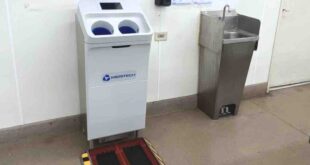Food manufacturers are being urged to prioritise quality checks when choosing new CO2 suppliers, in order to minimise food fraud risk.
The warning comes from global assurance provider, LRQA, following the recent closure of two plants which provided a combined total of 60% of the UK’s food grade CO2. The shutdowns came as the cost of producing ammonia (of which CO2 is a sellable by-product) became more expensive than importing it.
With CO2 already in short supply prior to the shutdowns, many businesses are having to work with new manufacturers or sellers to fulfil demand. Additionally, the recent devaluing of the pound suggests that further supply chain disruptions will occur as UK manufacturers look for more cost-effective ingredients.
Forbes Fyfe, Technical Account Manager for Agriculture Supply Chain at LRQA said: “When one link in a supply chain is affected it has a knock-on effect. What we’ve learned over the past few years of near-constant global upheaval is that the old ways of thinking about supply chains are becoming obsolete. We need to develop resilient supply networks capable of adapting to changes in the world while preserving food safety.”
According to Forbes, the spotlight must be on quality and safety as problems could arise if new suppliers are not thoroughly screened. Food grade CO2 must be at least 99.9% pure, and beverage grade – used in manufacturing carbonated drinks, including beer – must be even purer. The two grades have different applications in food production and are tested for different contaminants. If fraud occurs and food or industry grade CO2 (99.5% pure) is missold as beverage grade, for example, the likelihood of carcinogens entering consumer food products is increased.
Forbes continued: “Businesses must make sure that international standards are upheld and suppliers of CO2 – and all food components – have been corroborated. A food brand’s value lies in its reputation as a provider of quality products. Because of this, it is vital that standards do not slip, even when the supply chain is altered. As brands prioritise food safety, they will keep their customers – and their reputation – safe too.”
Alongside the shortages, CO2 prices have also significantly increased. Recent figures[1] show that the price of CO2 in August 2022 was 37% higher than it was four months prior, before the first plant closure was announced.
Forbes added: “Not only is the food sector fighting against shortages, but producers are also facing rising prices. To remain competitive, this means many manufacturers will be looking to make savings – creating a perfect climate for fraudsters to strike by offering cheap alternatives. But as we’ve seen time and time again, buying cheap isn’t always best; and the food industry cannot afford to cut corners. In times of change, it’s imperative to maintain vigilance regarding all types of food fraud.”
 Engineer News Network The ultimate online news and information resource for today’s engineer
Engineer News Network The ultimate online news and information resource for today’s engineer



